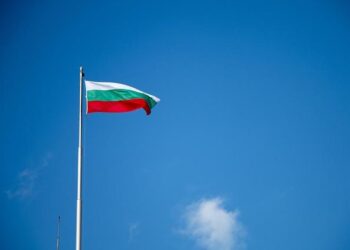Political tensions in Bulgaria are escalating as the future of the nation’s Counter-Corruption Commission hangs in the balance. Amid growing public scrutiny and intensifying political debates, key government figures and opposition parties clash over the commission’s mandate and independence. The controversy comes at a critical moment for Bulgaria’s ongoing efforts to combat corruption, raising questions about the country’s commitment to transparency and rule of law. This article examines the latest developments surrounding the commission’s fate and the broader implications for Bulgaria’s political landscape.
Political Fallout Intensifies as Government Debates Future of Bulgaria’s Counter-Corruption Commission
The political landscape in Bulgaria has grown increasingly volatile as debates surrounding the future of the country’s Counter-Corruption Commission reach a critical juncture. Key government figures remain deeply divided over whether to bolster the commission’s authority or implement reforms that critics argue could undermine its independence. Opposition parties have seized the moment to escalate their criticisms, accusing the ruling coalition of attempting to weaken anti-corruption efforts amid growing public dissatisfaction. This tension is reflected not only in parliamentary exchanges but also in pervasive public demonstrations demanding transparency and judicial accountability.
The commission’s effectiveness has been under scrutiny following a series of high-profile investigations that exposed corrupt practices within various government agencies. Supporters of reform highlight the need for increased oversight and accountability measures, while opponents warn against politicizing the commission’s mandate. The following table summarizes recent key positions taken by political factions:
| Political Faction | Stance on Commission | Proposed Action |
|---|---|---|
| Ruling Coalition | Support Reform | Modify Mandate, Reduce Independence |
| Opposition Parties | Preserve Independence | Increase Budget and Powers |
| Public Activists | Strengthen Oversight | Legal Protections for Whistleblowers |
The ongoing debate continues to stir intense public engagement and has become a defining issue for the country’s fight against corruption moving forward.
Deepening Divisions Highlight Challenges in Tackling Corruption Amid Political Unrest
Political factions in Bulgaria are increasingly at odds over the future direction of the nation’s primary counter-corruption body. With protests escalating and parliamentary debates growing more polarized, the ability of the commission to operate independently has come under intense scrutiny. Critics argue that ongoing political interference threatens to undermine both public trust and the commission’s effectiveness in rooting out endemic graft. Meanwhile, supporters maintain the necessity of strong oversight agencies but fear the current instability could erode reform gains made in recent years.
Key issues fueling the divide include:
- Appointment process: Debates over who should lead the commission have revealed deep partisan rifts.
- Legislative reforms: Proposed amendments have sparked fears about reducing the commission’s autonomy.
- Public perception: Growing skepticism among citizens about the integrity of anti-corruption efforts amid turmoil.
| Stakeholder | Position on Reform | Impact on Commission |
|---|---|---|
| Government Majority | Advocates for stricter controls | Potentially limits commission’s reach |
| Opposition Parties | Calls for full independence | Pushes for greater transparency |
| Civil Society | Demands accountability | Undermined by political infighting |
Experts Call for Greater Transparency and Independent Oversight to Restore Public Trust
In light of escalating political disputes, experts stress the urgent need for strengthened transparency within Bulgaria’s counter-corruption efforts. They warn that without clear, independent supervision mechanisms, the public’s confidence in anti-corruption institutions may continue to erode. Analysts point out that opaque procedures and past allegations of political interference have undermined the Commission’s credibility, calling for reforms that would guarantee greater accountability and diminish potential undue influence.
Key proposals presented by civil society leaders and international watchdogs emphasize:
- Establishing an independent oversight body with no political affiliations
- Mandatory public reporting on investigations and outcomes
- Enhanced safeguards to protect whistleblowers and investigators
- Regular audits by external agencies to ensure integrity
These measures aim to restore a fractured trust landscape and reinforce the integrity of anti-corruption efforts amid the ongoing political turmoil.
| Proposal | Intended Impact | Expected Timeline |
|---|---|---|
| Independent Oversight Body | Reduce political interference | 6-12 months |
| Public Reporting Requirements | Enhance transparency | 3-6 months |
| Whistleblower Protections | Increase investigator security | Completed Table (continued from last row) |
| Whistleblower Protections | Increase investigator security | 3-6 months |
| Regular External Audits | Ensure operational integrity | Ongoing, quarterly |
















